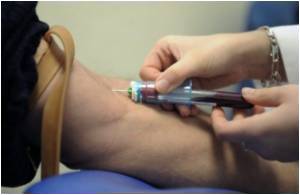The authorities are investigating whether Theranos, a startup that touted a new way to test blood, misled investors and regulators about its technology and its operations.

‘Theranos touts a new way of blood testing that uses far less blood and delivers faster results at much lower cost than traditional methods in US labs.’





"In the past, we have generally not commented on the specifics of these inquiries out of deference to our regulators and in light of specific requests for confidentiality," the memo read. "However, in light of consistent press attention in this area we want you to hear about them from us."
The Wall Street Journal on Monday cited unnamed sources as saying that federal prosecutors are investigating whether Theranos misled investors and regulators about its technology and its operations.
"The company continues to work closely with regulators and is cooperating fully with all investigations," said a Theranos spokesperson.
Investigations into Theranos by departments of health in the states of Pennsylvania and Arizona, as well as by the US Food and Drug Administration, have been successfully closed, the startup said in the memo.
Advertisement
Elizabeth Holmes took the crown of youngest "self-made" woman billionaire thanks to revolutionary blood tests touted by the Silicon Valley startup.
Media outlets knocking her from her pedestal had previously praised the 31-year-old as a visionary along the lines of Apple's famed co-founder Steve Jobs.
She was only 19 when she founded Theranos in 2003, launching it with money her parents had set aside for her education.
Holmes and Theranos were a hit with investors, who valued the startup at some $9 billion during the last funding round in 2014.
Late last year, however, the Wall Street Journal published articles questioning the reliability of Theranos technology and the veracity of the startup's claims.
The newspaper accused Theranos of using widely available commercial equipment -- debunking the firm's claims of "revolutionary" testing.
The company and its boss have publicly defended Theranos and stood by its innovations.
Earlier this year, US regulators warned Theranos in a letter that Holmes could face a temporary ban from being in the blood-testing business due to potentially dangerous problems found at its lab in Northern California.
Source-AFP









